
























The weekly newspaper for air cargo professionals






























Air France KLM Martinair Cargo (AFKLMP Cargo) has partnered with Salesforce and Vonage to innovate its global customer service with a new Customer Relationship Management (CRM) solution. This provides customers with faster, better service by phone and digital channels, integrated into a single platform, with more tailored support. The partnership with Salesforce provides customer service teams with a 360-degree view of customers, helping them to optimise services. AFKLMP Cargo sees customer service as a cornerstone of its strategy to create seamless, efficient, personalised customer experiences. The company considers the use of data and advanced technology, including artificial intelligence (AI) as essential in achieving this.
Having comprehensively assessed its global customer service operations, AFKLMP Cargo identified the untapped potential of data and technology. By implementing the new CRM solution, integrated with a contact centre solution, the company wants to transform the overall customer experience and streamline processes underpinning customers’ daily business operations.
Using technology from Salesforce and Vonage, customer service teams can personalise interactions and provide tailored support across all channels. The full solution includes integrated telephony and AI-driven insights for a better omnichannel service experience. By analysing data on customer preferences, shipping patterns and feedback, AFKLMP Cargo can further optimise its service. The next step will be to explore the potential of generative AI to support service agents.
“Our decision to invest in a new state-of-theart CRM and contact centre solutions is a key
Page 8
AWERY WINS IATA HACKATHON ...
AWERY Aviation Software (Awery) has been awarded the Cargo iQ Prize at IATA’s ONE Record Hackathon 2023 for its door-to-door ...
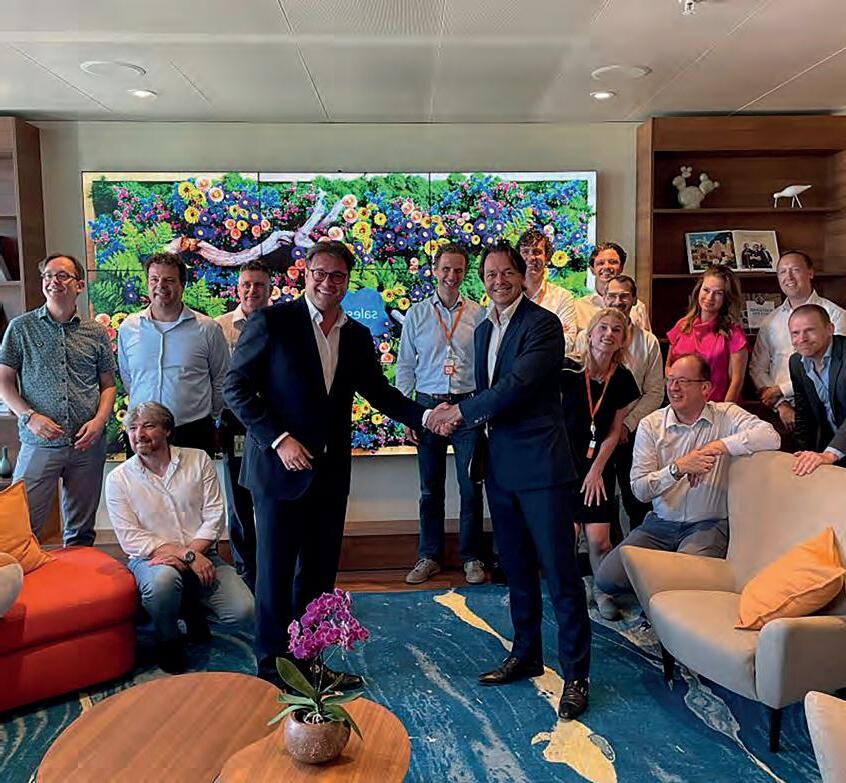
PAGE 2
development and an important building block of our overall commercial transformation, which we started in 2020. On top of the technological advantages and possibilities, our customers will continue to benefit from our highly experienced and specialised customer service teams at over 60 offices worldwide, connecting them through our
new CRM platform. This will help optimise timeto-market and improve overall service levels. All this fits in with our commitment to becoming a leader in sustainable airfreight, while passionately delivering best-in-class customer experiences,” GertJan Roelands, SVP Commercial at AFKLMP Cargo, said.
MAASTRICHT Aachen Airport (MST) unveiled its newly renovated runway at a launch event held at the airport on 30th June 2023 ...


PAGE 4
THE GSSA MODEL IN A DIGITAL ... IN the rapidly evolving GSSA (General Sales and Service Agent) industry, companies are facing changing customer requirements. Kales Group has strategically ...
PAGE 5
POWERED BY PEOPLE...
THE air cargo industry has witnessed significant evolution in recent years, with changing customer requirements and disruptive events impacting ...

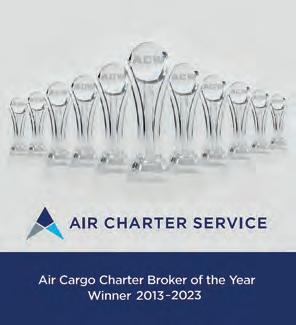
PAGE 6

AWERY Aviation Software (Awery) has been awarded the Cargo iQ Prize at IATA’s ONE Record Hackathon 2023 for its door-to-door airfreight planning and real-time update solution for Cargo iQ members, CargoTracking.aero.

Entrants were challenged to develop a solution to support planning and updating cargo tracking events when performed by non-Cargo iQ third parties, such as trucking companies, which are currently not able to share status updates with Cargo iQ members.
Awery’s prototype solution facilitates cross-stakeholder planning via a URL, which Cargo iQ members and nonmembers can share with their unmonitored providers, enabling them to input shipment details through IATA’s ONE Record Data Sharing Standard API.
“Our solution is open source, and we truly believe it could develop quickly once implemented by the air cargo community, speeding up the adoption of the ONE Record standard across the whole industry,” said Vitaly Smilianets, Chief Executive Officer, Awery.
“We are proud to have the opportunity to work on a common modern standard for the air cargo sector.
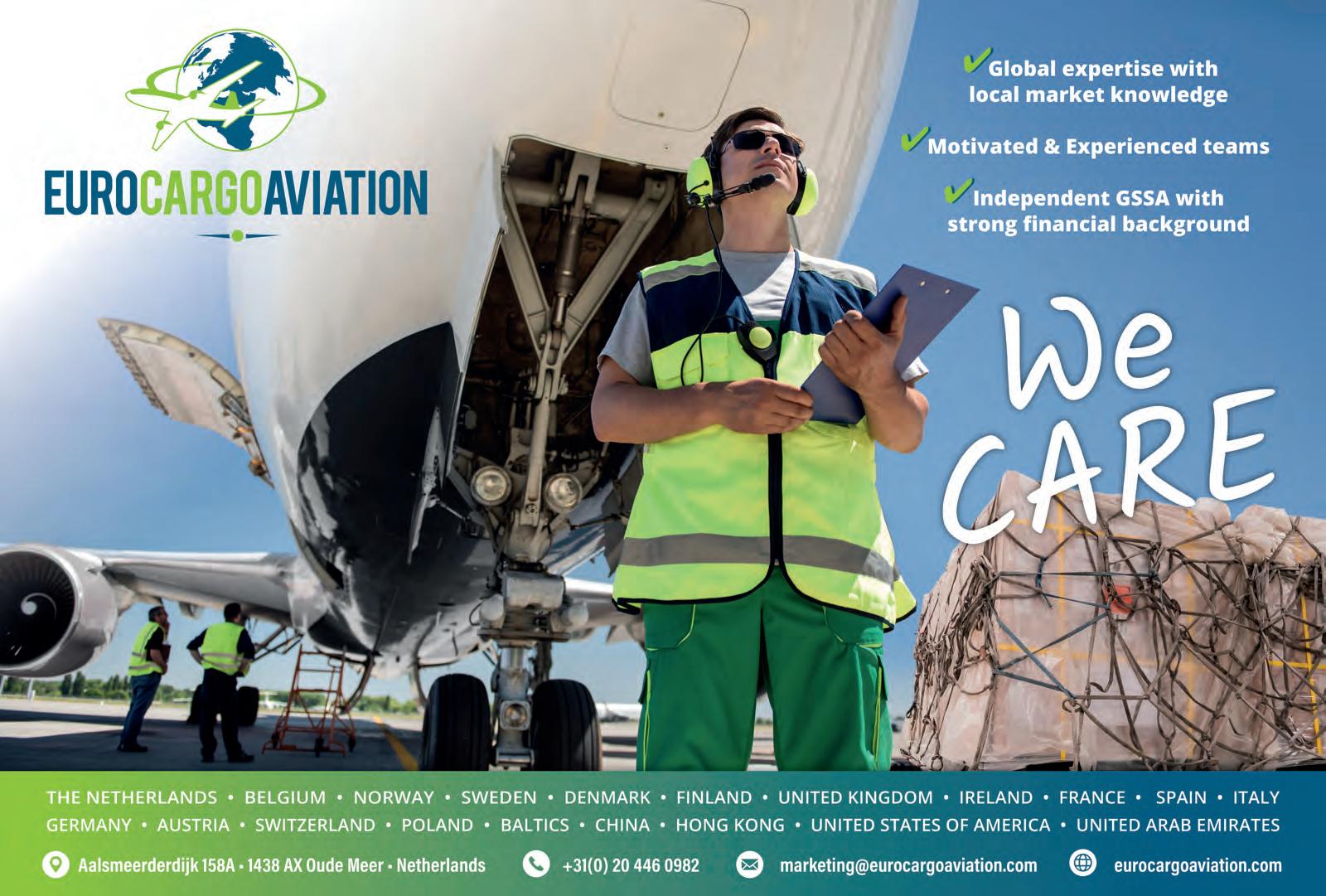
“What we have created in 28 hours of continuous brainstorming and work is an impressive start, and we will continue to develop this moving forward.”
The solution was praised by judges for its ability to fill in the gaps in the Cargo iQ door-to-door Route Map, which
enables stakeholders to collaborate on planning and monitoring the journey of an air cargo shipment.
“Awery’s application stood out as it presented an easy way to gather status updates from third parties and at the same time provides a feasible way to plan events such as Proof of Delivery for those providers,” said Laura Rodriguez, Implementation and Quality Manager, Cargo iQ.
CargoTracking.aero is supported by three apps developed by Awery during the hackathon.
Two of the apps enable freight forwarders and third parties to plan and confirm events over the course of a shipment as well as upload documents.
The third app provides shippers and consignees with visibility of the shipment by providing key information on planned and actual events.
“IATA’s ONE Record is all about driving supply chain visibility and transparent data access,” said Henk Mulder, Head of Digital Cargo, IATA.
“The Awery hackathon team picked up on that and created the perfect match with Cargo iQ.
“This collaboration is a great approach to help the industry close the visibility gap in the supply chain.”
Awery is working towards becoming fully compliant with ONE Record and will offer this provision to its customers in the near future.
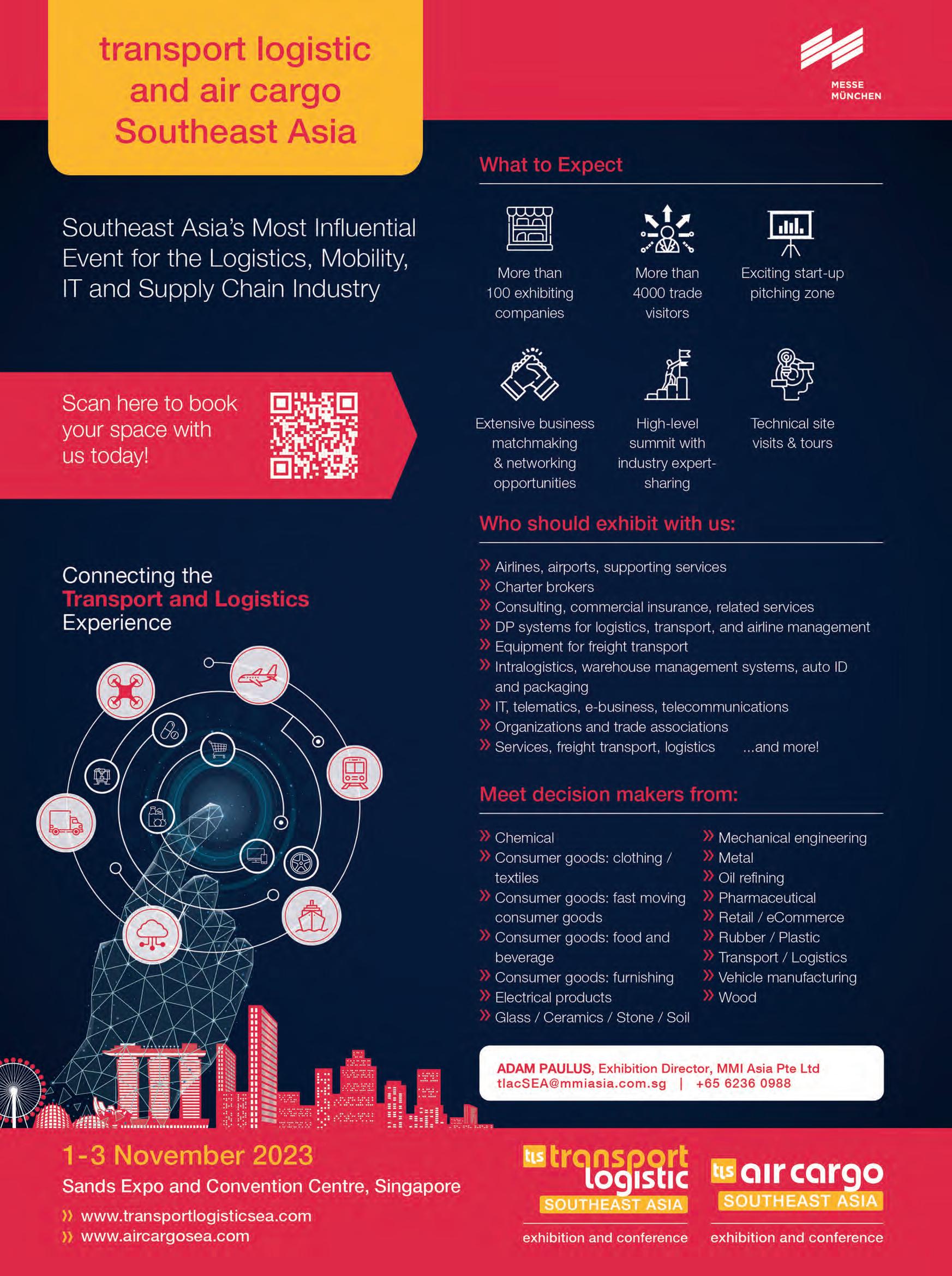
MAASTRICHT Aachen Airport (MST) unveiled its newly renovated runway at a launch event held at the airport on 30th June 2023.

The second largest cargo hub in the Netherlands has invested €35.3 million to upgrade the airstrip as part of a plan to extend its operational length to 2,750 metres by January 2025.
The eight-week renovation was part of Maastricht Aachen Airport’s overall infrastructure development plan to invest €100 million in the airport over the coming years.
Sustainability was the key theme of the ceremony, with an electric aeroplane used to officially open the runway after RWTH Aachen University professor Dr Günther Schuh delivered a speech on the future of sustainable aviation.
“Today, we are celebrating the launch of our newly improved runway and looking back over the hard work that has gone into the planning and execution of this project – but we are also looking forward,” said Jos Roeven, Chief Executive Officer, Maastricht Aachen Airport.
Cargo operations have now returned at MST, with Turkish Cargo operating five flights a week out of the hub.
Royal Jordanian and Emirates SkyCargo have also continued their operations at the airport, both running two flights each week.
ETIHAD Cargo has appointed Wallenborn Transports as its road feeder service (RFS) partner for Europe to expand its scheduled and specialised services across 27 countries, facilitating the transportation of cargo between Etihad Cargo’s main European gateways, including Amsterdam, Paris and Frankfurt, and offline stations.
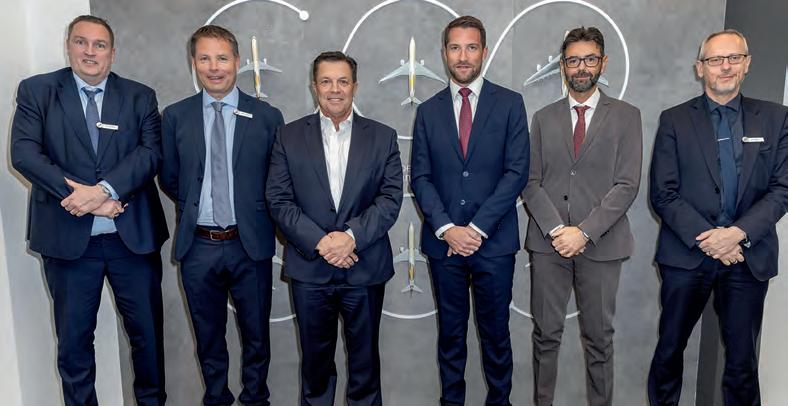
“Providing seamless connectivity between Etihad Cargo’s European main freighter gateways and offline destinations is essential to meeting the carrier’s delivery promises,” Etihad Cargo’s Head of Cargo Operations and Delivery, Thomas Schürmann, said. “Strategic partnerships with leading RFS providers such as Wallenborn strengthen Etihad Cargo’s value proposition and will enable the carrier to further expand operations in Europe, which is a key
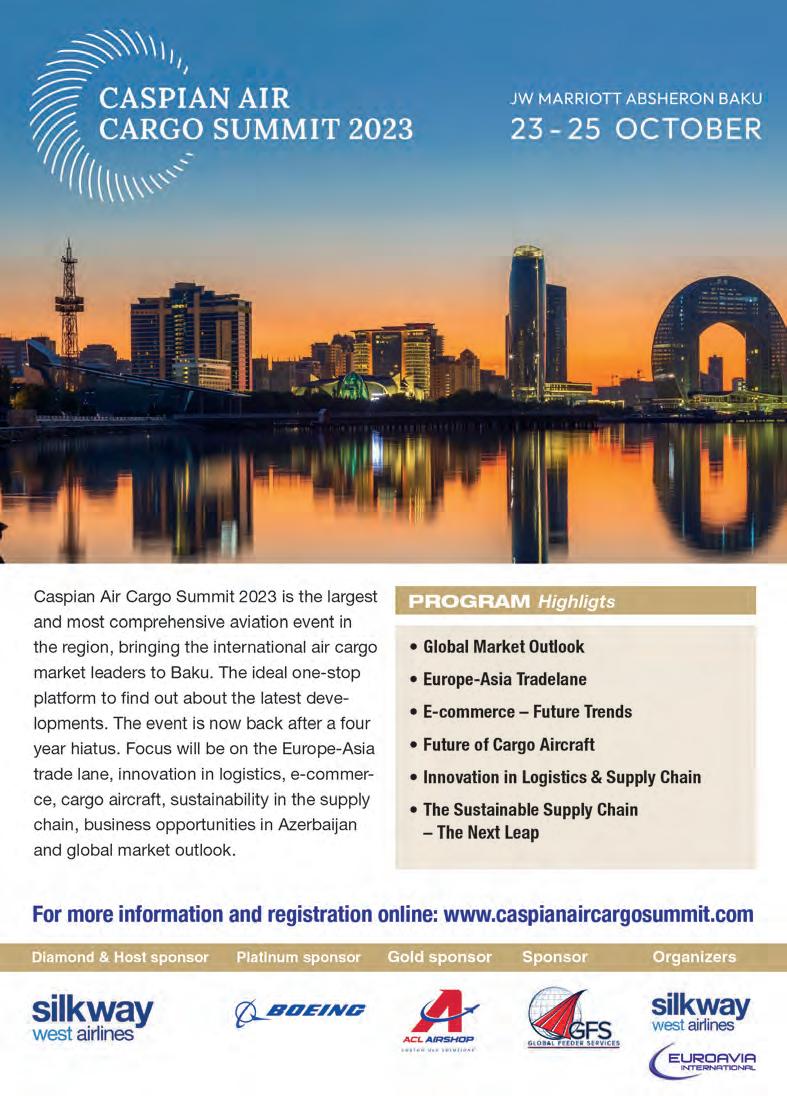
territory for the airline.”
“Our values are closely aligned, and we both aspire to make air logistics smarter and more sustainable. This partnership will give Etihad Cargo’s customers access to a comprehensive network connecting over 90 airports and a range of specialised logistics solutions, such as GDPvalidated transport for temperature-sensitive healthcare products,” Frantz Wallenborn, Wallenborn Group President & CEO, commented.
Etihad Cargo has entered into strategic partnerships with RFS providers around the world to bolster its operational footprint and ensure the efficient end-to-end journey of cargo. The new partnership with Wallenborn will enhance the carrier’s capabilities in Europe and will enable Etihad Cargo’s customers to benefit from specialised logistics solutions.

IN the rapidly evolving GSSA (General Sales and Service Agent) industry, companies are facing changing customer requirements. Kales Group has strategically positioned itself to address these evolving needs. With a strong focus on digital solutions and a global perspective, Kales is keen to revolutionise the way airlines optimise their revenues and streamline operations.
Understanding the importance of digital solutions in the modern aviation industry, Kales looks to leverage technology to provide airlines with networking opportunities. The company’s ability to unburden airlines through complete services and global coverage sets it apart from competitors.
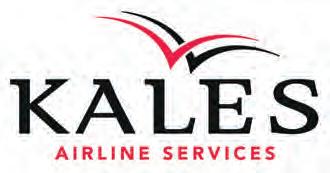

“We are thinking outside of the box on behalf of the airline, coming up with innovative solutions for the airlines,” Sebastiaan Scholte, CEO of Kales Group, said. “Our competitive edge is that our people think like they are a core part of the airline but then with an entrepreneurial spirit of a can do culture.”
Adapting to the changing landscape Airlines are seeking comprehensive management of their air cargo activities, beyond just sales and marketing. Kales has met this demand through its Total Cargo Management (TCM) solutions. With a vast network of global offices and reliable partners, Kales can cover end-to-end activities for airlines worldwide.
“Despite all the digital solutions and actionable market data we offer, it is still quite a people business where relationships matter,” Scholte said. “We have excellent relationships with the forwarders and airlines. The sales activities are a core process for an airline. In order to outsource that there needs to be a relationship based on trust.”
The company’s expertise in back-office activities, cost-effective execution, flight supervision, and handling solutions contribute to its position in the industry. Kales offers a range of services, including TCM solutions, back-office activities, and conventional GSA services. Leveraging economies of scale and in-depth process knowledge, Kales delivers high-quality, cost-effective solutions to its airline partners. In terms of cargo volume, Kales handled approximately 200,000 tonnes last year, highlighting its significant presence in the air cargo industry.
The air cargo industry has faced turbulent times in recent years, but Kales has proven its resilience by remaining agile and adaptable. “In recent years there were challenges and also lots of opportunities,” Scholte explained.
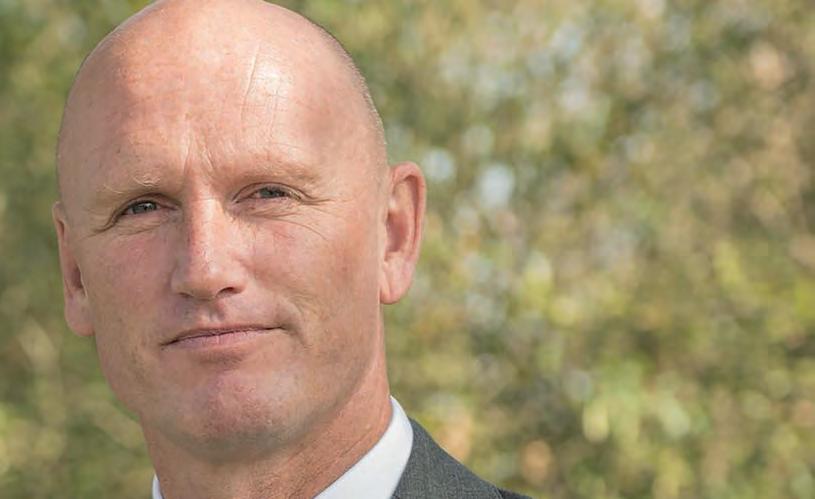
The company’s structure allows for swift decision-making, always with a focus on optimising revenues and operations for its airline customers.
In the people-centric GSSA sector, maintaining strong customer relationships is crucial. Kales
ensures constant dialogue and engagement with customers, understanding that performance and delivering results are paramount to sustaining these relationships, particularly during disruptions and fast-paced changes in the supply chain.
“Keeping a constant dialogue and engagement with customers is crucial, but most importantly is that we have to continue performing and delivering results,” Scholte said.
Challenges and management
Kales acknowledges that challenges can arise in various regions, such as China, where strict measures disrupt logistics. However, the company’s flexibility, agility, and ability to adapt ensure that it emerges stronger from such situations.
Like other industry players, Kales has experienced the impact of slowing demand. However, the company’s flexibility, agility, and commitment to automation and digitisation have enabled it to adapt to changing demand levels effectively.
Kales is working to address labour challenges by offering favourable conditions, entrepreneurial freedom, and opportunities for growth to its workforce. By creating an environment that fosters pride and encourages individual efforts, Kales attracts skilled personnel.
“Indeed costs have come up and good skilled workforce is still relatively scarce due to the tight labour market. We have a low attrition rate at Kales because we offer very good conditions and allow people to be entrepreneurial in the broader sense of the word,” Scholte explained.
To manage rising financial pressures caused by global disruptions and inflationary trends, Kales emphasises efficiency through automation, growth to achieve economies of scale, and continuous cost management.
“As an industry we have the so called scissors effect where costs are rising and yields and volumes are declining,” Scholte said. “The only way to keep costs at a competitive rate is by doing things more efficiently.”
Kales envisions the future GSSA sector as an integrated entity that offers seamless services to airlines, forwarders, integrators, and e-commerce companies. Moving beyond commission-based sales, the GSSA will act as a partner, facilitating smart combinations of airline networks and embracing new capabilities, technologies, commerciality, and sustainability.
“Being in constant contact with many airlines and forwarders in the industry, the GSA can utilise this to act as a connecter that initiates smart combinations of airline networks,” Scholte highlighted.
With aspirations to expand geographically, with a particular focus on Asia and the Americas, Kales is intent on providing more digital and efficient services, capitalising on opportunities in prime regions.
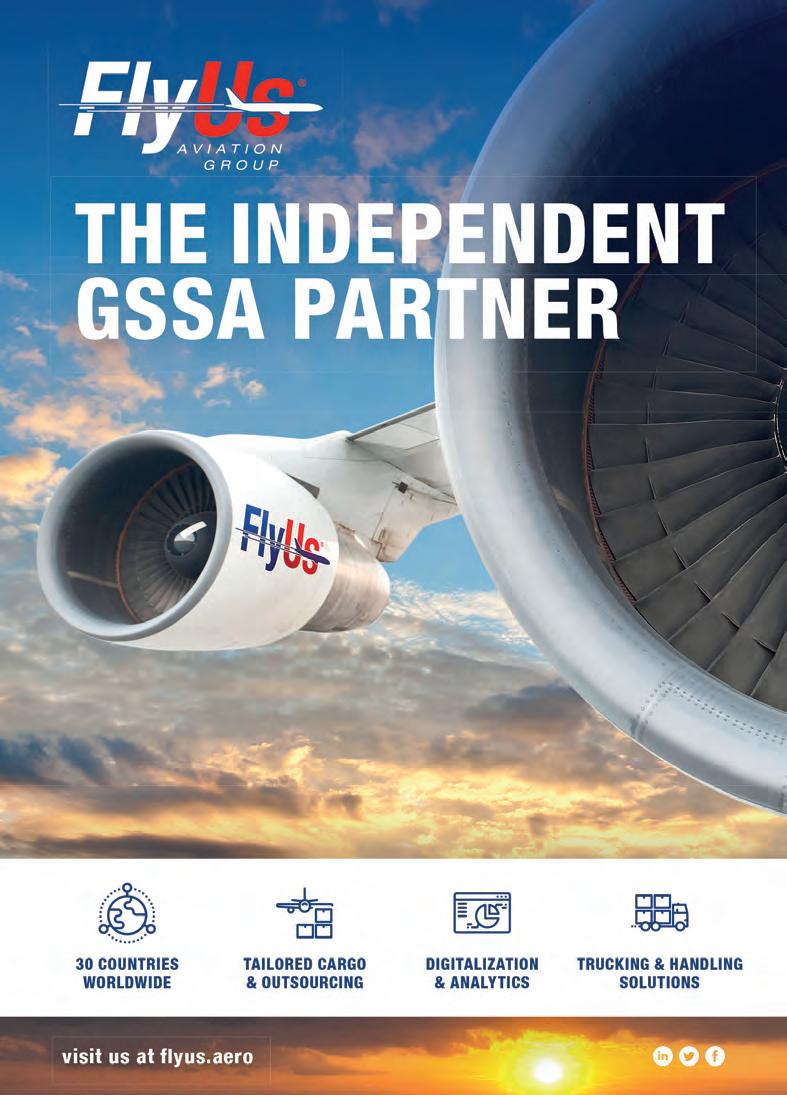
THE air cargo industry has witnessed significant evolution in recent years, with changing customer requirements and disruptive events impacting the sector. Recognising that the airfreight sector is in a constant state of flux, Global GSA Group has adopted a nimble and proactive approach.
Acknowledging that the industry undergoes regular changes, with new players entering the market, airlines appearing and disappearing and more, Global GSA Group is ready to navigate the market with a strategy of being open, transparent and adaptable.
Balancing people and digitalisation
While technological advancements and digitalisation have transformed various aspects of the air cargo industry, Global GSA Group emphasises that people remain at the core of their success. Recognising the significance of human relationships and expertise, they value the role
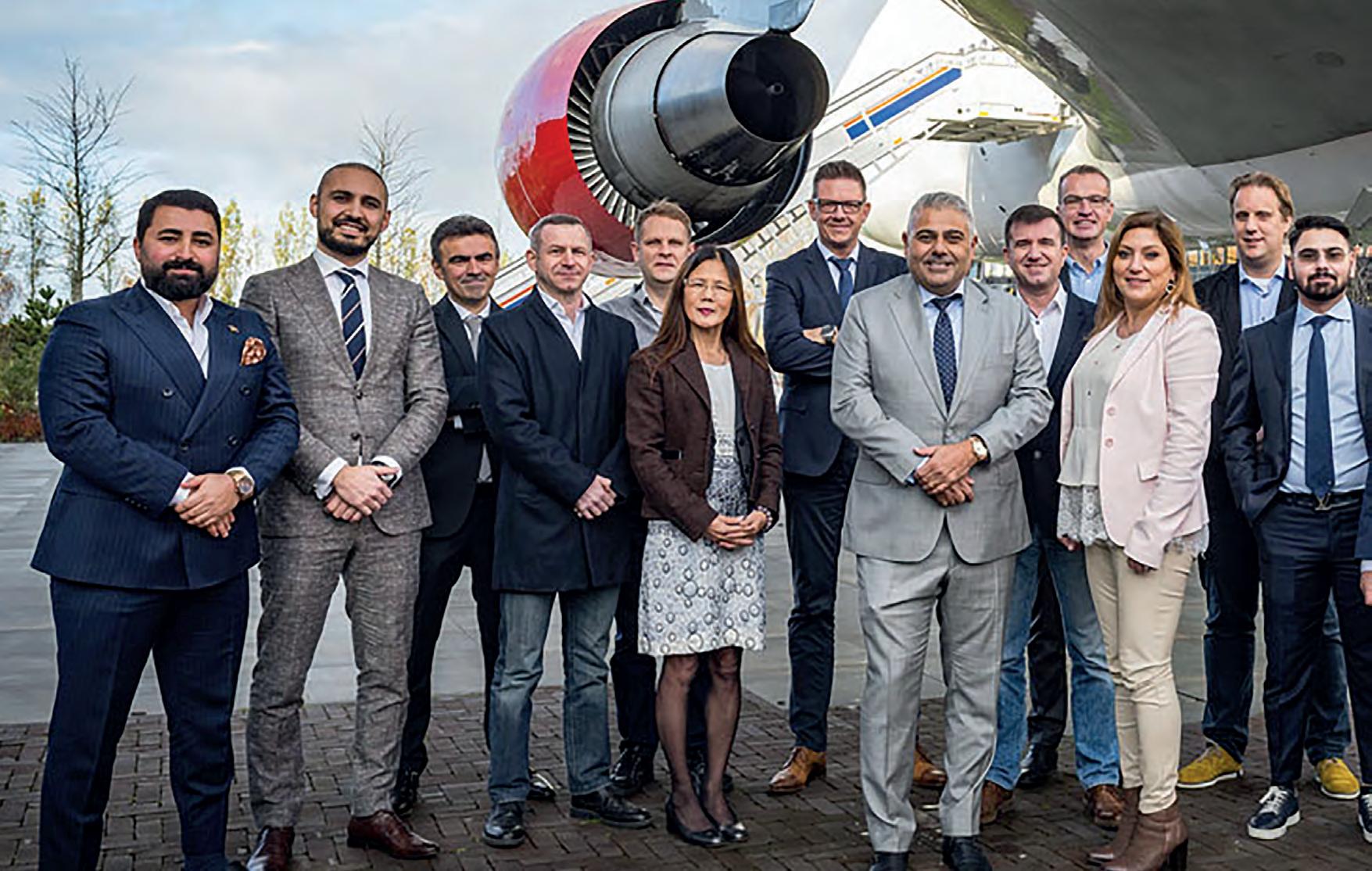
At the same time, they acknowledge the need to embrace digital tools and leverage them in conjunction with the expertise of their workforce. Finding a balance between people-oriented approaches and technological innovation is critical for Global GSA Group’s sustained growth.
“You have to face customers. You have lunch with them, you put time and effort into them. You have to have the IT tools, as, if you’re not using them, you will not win. We try to find the mix from both.”
The air cargo industry has faced significant disruptions in recent years, particularly due to global events like the COVID-19 pandemic. Global GSA Group acknowledges the resilience of their team as a crucial factor in rebounding from these challenges.
“The key is always the people. That’s it.” Durmaz said. “You can start everywhere with your best system, the biggest airline and the biggest capacity but if you don’t have the right people then it won’t work.”
Having the right people on board, with deep industry knowledge and expertise, has been instrumental in ensuring they weathered the storm. Although they have experienced a drop in numbers during these turbulent times, Global GSA Group remains optimistic and anticipates a gradual recovery.
“Our industry is still a people business, so I can tell you when I would like to start a new a new office in the country, it’s because I have the right manager I trust.”
“Our key and our success is still the people. We have really good people are working with us for 25-30 years. The team and the quality of staff we have is the best.”
Similarly, Global GSA Group places great importance on customer relationships, even during periods of disruption and rapid changes in the supply chain. By closely monitoring market evaluations, growth patterns, and customer demands, they adapt their strategies to align with evolving requirements.
“As Global GSA Group, we will really take the risk and the capacity out of the airlines and say okay, we believe that we can do this. Everything is under our control,” Durmaz said.
While Global GSA Group has demonstrated resilience and growth in many regions, they acknowledge specific challenges in areas like the Far East, where market drops have been more significant.
Despite this, they maintain a cautious yet opportunistic approach and are exploring potential acquisitions in the Far East to expand their local footprint. Durmaz emphasised the need for careful evaluation in light of the changed market dynamics caused by the COVID-19 pandemic.
“There will always be change. There will be always flexible, turbulent times. I believe that it will never be quiet in this world,” Durmaz said.
of experienced professionals in building and maintaining strong customer connections. “The old fashioned managers are really against it. We try to shake them up and try to change them and the mindset,” Ismail Durmaz, CEO of Global GSA Group, said.

“Digitalisation is a part of our industry. We are investing a lot to be part of this,” he added. “We have a partnership with CargoTech, which is running our digital transformation, so we are doing our part in a changing industry.”
They also highlight the significance of their extensive network, particularly in Europe, the US, and South America, which has provided stability amid regional challenges. Recognising the value of collaborative partnerships with forwarders and other industry players, Global GSA Group sees great potential to add further value to their services.
“We are trying to grow and buying some GSAs was fitting in our portfolio,” Durmaz explained. “We did some acquisitions in Italy, one in South America and another in the US.”

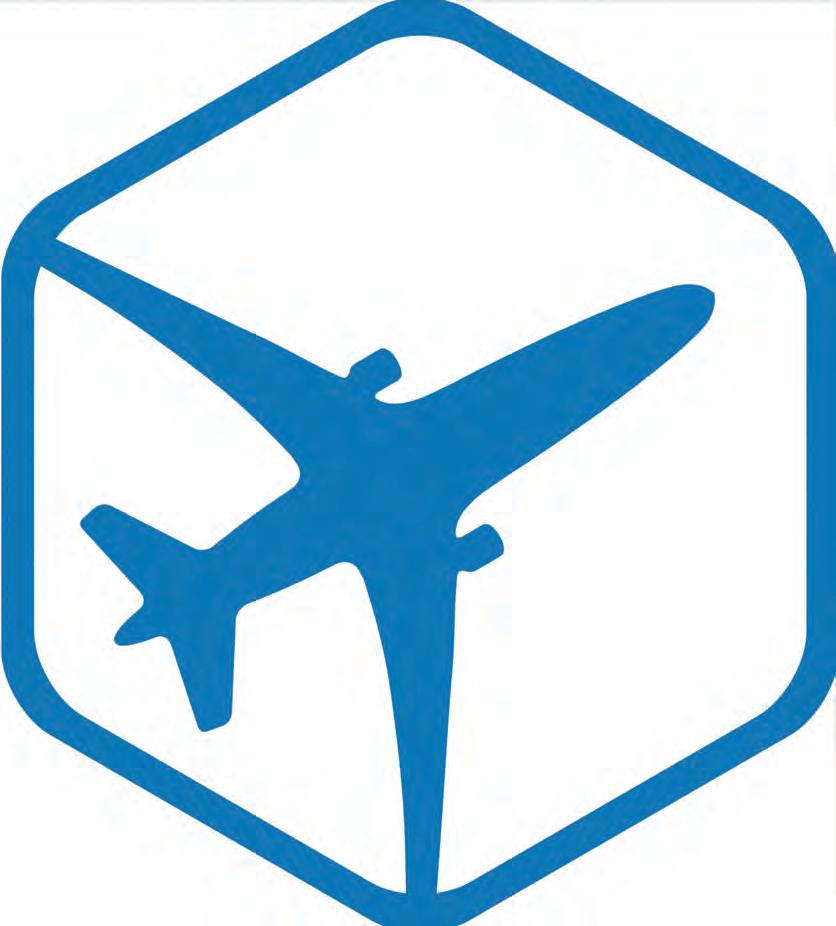
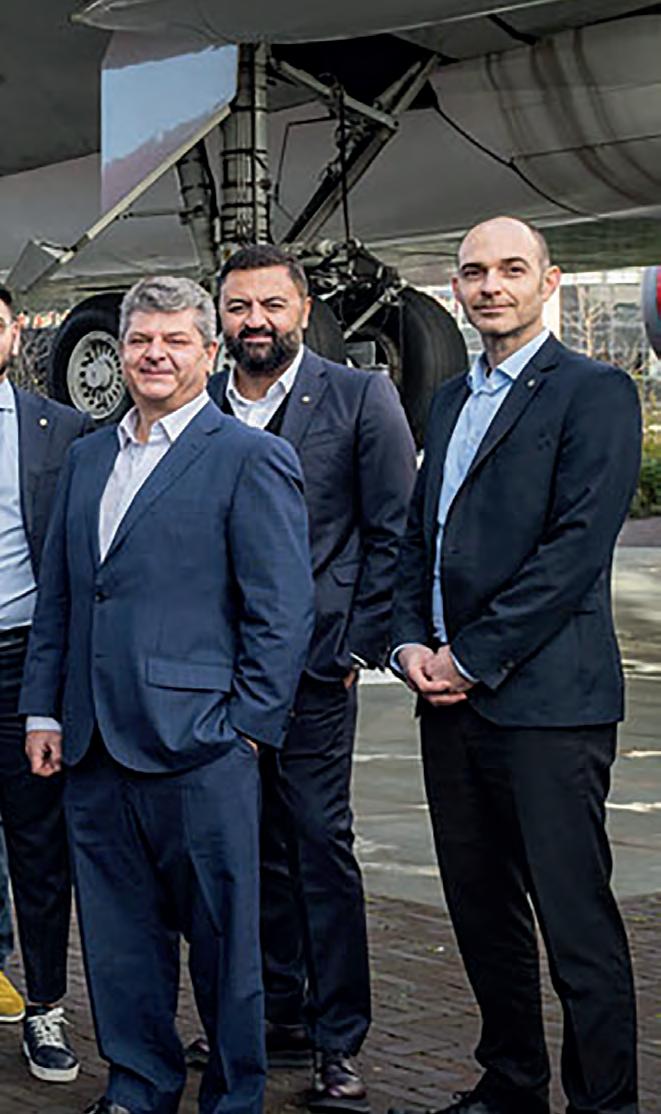
ECS Group has enjoyed an impressive performance in the face of instability and fluctuating demand, crediting its resilience and success to strategic preparedness, cost control measures, and their ability to embrace technological innovation and diversification.
As the year drew to a close in 2022, the air cargo market showed signs of decline, particularly in terms of volumes. However, ECS Group was well-prepared for this eventuality, having anticipated the challenges and structured their operations accordingly.
“I cannot say that it was a big surprise. We were prepared for that. We were organised. We’re already controlling your costs,” Adrien Thominet, ECS Group Chairman and CEO, explained.

The team swiftly adapted to the changing landscape and focused on identifying opportunities to compensate for any losses. Their ability to swiftly respond to the situation and think creatively about diversifying their activities became a key factor in their strength during uncertain times.
The company’s strategy of diversification was a significant driver of their success. During the COVID-19 pandemic, ECS Group dedicated time and effort to expand their services and solutions.
“We diversified a lot of our our activity last year,” Thominet said. “It’s the kind of additional activities that we created the last two to three years that have reached a level of maturity now, so we see a lot of traction and interest from the airlines.”
One of the noteworthy solutions that emerged was their comprehensive air cargo offering. By bundling various services like handling, tracking, audits, and documentation into a single package, ECS Group provided airlines with an all-inone solution for their cargo operations. This approach proved highly attractive to their clients and contributed significantly to the company’s growth.

“If you take the full menu, the full set, then you have an all in solution,” Thominet said. “So, we came up with this idea giving an airline the opportunity to hand us the keys of their cargo activity.”
Collaboration with CargoTech was instrumental in ECS Group’s digital transformation. The integration of advanced digital functionalities provided by CargoTech enhanced operational efficiency, resulting in a strong appetite from the market and airlines alike.
Embracing digital solutions has been crucial in the air cargo sector to optimise revenues, particularly in a time of declining demand. These solutions offer tools for revenue optimisation, booking, and forecasting, along with sustainable initiatives such as measuring carbon consumption. Airlines have shown great interest in these technological innovations as they seek ways to maximise efficiency and revenue amid challenging market conditions.
“It’s driving a lot of growth in our activity,” Thominet stated. “CargoTech really has advanced solutions, very innovative solutions that the team is developing. And the market, the airlines, really have a strong appetite for those sort of digital solutions.”
In terms of expansion, ECS Group appointed a new commercial head for North America, highlighting their commitment to the growing cargo market in the region. The company sees significant opportunities in the US market, where they recently secured a contract with Air India. This move aligns with their strategy to invest in key markets and leverage local expertise and networks.
“We had very nice business opportunities and were needing strong representatives there,” Thominet said. “We need to invest because those guys will really bring us their expertise, their networking.”
Looking ahead to 2023, ECS Group expects the air cargo market to remain stable, with little room for significant growth. However, their agile and lean organisation, coupled with their ability to capitalise on outsourcing opportunities during challenging times, positions them well to weather the uncertainties ahead.